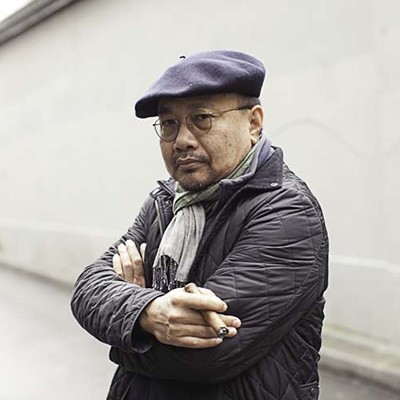Rithy Panh
Writer and director

Rithy Panh was born in Phnom Penh in Cambodia. After escaping from the Khmer Rouge camps in 1979, he spent several months in a refugee camp in Thailand. He moved to France a year later in 1985 and began attending IDHEC (Institut des hautes études cinématographiques [Institute for Advanced Cinematographic Studies]).
After becoming a director, he has dedicated most of his films to his native country. He directed his first documentary, Site 2, in 1989 and other acclaimed films, including dramas such as Rice People, screened in the official Cannes competition in 1994 and One Evening After the War screened at Un Certain Regard in 1998.
However, it was the documentary S-21: The Khmer Rouge Killing Machine that left a lasting impression. The film won at Cannes in 2003 and earned the Scam Best Documentary Award. It also featured in various festivals.
He screened The Burnt Theatre outside of the competition in Cannes in 2005. In 2007, he made Paper Cannot Wrap Up Embers, which was based on the plight of female prostitutes in Cambodia and won the FIPA d’Or in Biarritz.
His documentary The Missing Picture received the Un Certain Regard Award, as well as an Étoile de la Scam. It was also nominated for Best Foreign Language Film at the Oscars.
In 2012, Rithy Panh published The Elimination, a moving in-depth account of his journey that was co-written with Christophe Bataille. The Elimination won numerous literary awards (Prix Joseph-Kessel de la Scam, Prix Aujourd’hui, Prix de la SGDL, Prix de l’Essai France Télévisions, Grand Prix des lectrices de ELLE).
In 2015, Rithy Pathy released his latest documentary France est notre patrie (France is Our Homeland). The film, which is mainly composed of archive footage, is the story of a failed encounter between two cultures, two sensibilities and two imaginary concepts